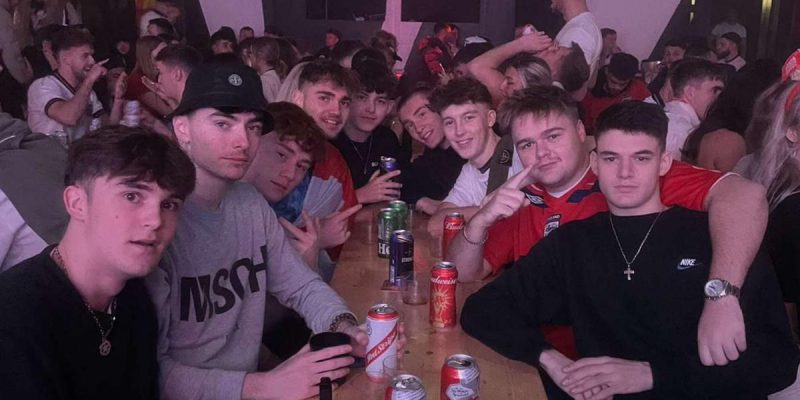The FIFA World Cup Qatar 2022 kicked off this winter, on the 20th of November.
Many football fans across Bournemouth have been celebrating England’s World Cup run.
One of the busiest locations hosting the matches is Halo, a nightclub which has transformed into a sports venue for the viewing of the matches.
Halo, as a host of the matches, has been an outlet for many male viewers in a difficult time of mental health struggles and the cost of living.
Jude Webb, an 18-year-old retail worker and regular football viewer, said Halo’s atmosphere “brings a sense of togetherness.”
Suicide is the number one killer of men under 45 in the UK, found by the NHS.
Oscar Vas, a 19-year-old AUB student said: “The World Cup definitely takes your mind off everything.”
Mr Vas also added: “There is a stigma surrounding it to be manly.”
Another young male, 19-year-old Bartender Edward Neath said: “Sport is always a good distraction for mental health.”
As-well as this, Mr Neath said: “It takes your mind of real world things for 90 minutes.”
The FA launched a campaign titled ‘Heads Up’ in 2019 to “all come together to change the conversation on mental health through football.”
Seeking help from mental health charities is more relevant than ever within Britain’s cost of living crisis, with more than 9 in 10 (91%) higher education students reported that living had increased compared to last year, according to the ONS.
Mr Vas said: “Most university students struggle to balance work and budgeting” with the world cup “doing a world of good” regarding these struggles.
Although the world cup may be an outlet for some struggling with mental health, it can be difficult for hospitality staff working during the large-scale event.
Former bar worker, 19 year old Charlie Larkin worked during the 2021 euros.
He found customers to be in “higher spirits”, but the job “very stressful, even though I’m a huge football fan.”
Mr Neath added: “Due to demand of drinks, it could be a tough time for the staff mentally.”
‘Heads up’ charity partner with CALM have a free helpline- 0800 58 58 58.

